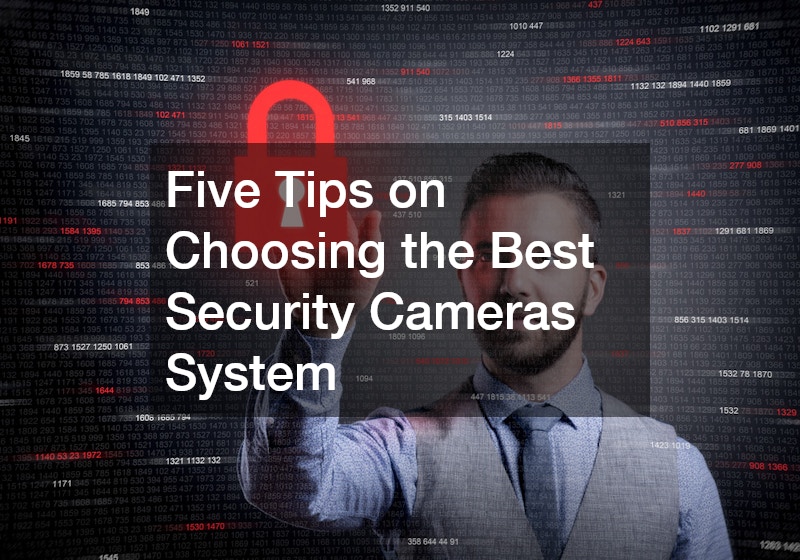
In an era where security presents as a significant concern for both residential and commercial properties, the installation of a robust security cameras system has become more critical than ever. Protecting your assets and ensuring the safety of your loved ones is not just a priority—it's a necessity. Whether you own a small business, manage a large facility, or simply want to enhance the protection of your home, investing in a quality surveillance system can deter criminal activity, provide real-time monitoring, and offer invaluable evidence in the event of an incident.
Video Source
However, navigating the vast array of security camera systems available on the market today can be a daunting task. With advancements in technology, options now include features such as remote viewing, motion detection, night vision, and cloud storage—each with its own set of benefits and limitations. In this article, we share five essential tips to guide you in selecting the best security camera system to suit your specific needs and give you peace of mind.
The first and most crucial step in choosing a security camera system is understanding your specific security needs. Are you aiming to monitor the exterior perimeters of your property, or do you need indoor surveillance as well? Consider the high-risk areas such as entry points, garages, and hallways, which might require constant monitoring. Additionally, be aware of the specific features that are crucial to you, such as motion detection, night vision, or high-definition video quality. Enlisting the help of a security consultant can be beneficial as they offer tailored recommendations, ensuring your security system is optimized for your property.
When installing a security camera system, choosing between wired and wireless systems is a pivotal decision. Wired systems, though reliable and often delivering excellent video quality, require professional installation and are more labor-intensive due to the cabling involved. On the other hand, wireless systems provide flexibility in placement, ease of installation, and can be easily expanded over time. While wireless systems are convenient, it's important to note that they rely on a robust Wi-Fi connection for optimal performance. Weighing the pros and cons of both systems will help you determine which setup aligns best with your needs and preferences.
The field of view of a security camera determines the area it can cover and the details it can capture, which are crucial factors in surveillance. Cameras with a broader field of view can cover more extensive areas, making them particularly effective for monitoring open spaces. However, a narrower field of view allows for more detail and is better suited for focusing on specific points of interest like entryways. Utilizing a combination of cameras with varying fields of view can provide comprehensive coverage. Some cameras also come with adjustable lenses, allowing you to customize the coverage according to your needs.
An often overlooked aspect of a security camera system is the storage of the footage captured by your cameras. Most systems offer options like local storage via hard drives or network video recorders, as well as cloud storage solutions. Deciding which option to choose depends on your budget, the amount of footage you need to store, and how long you intend to keep the recordings. While cloud storage is more convenient and secure due to regular backups, it might incur ongoing costs. On the other hand, local storage provides immediate access without an internet connection but may be vulnerable to damage or theft.
With the rise of smart home technology, choosing security cameras that integrate well with other smart devices can significantly enhance your system's efficiency and functionality. Consider cameras that support integration with platforms like Google Home, Amazon Alexa, or Apple HomeKit. This enables features like voice control and real-time alerts directly to your smartphone, providing peace of mind wherever you are. Moreover, integration allows for seamless operation alongside other security features such as smart locks or motion sensors, creating a comprehensive smart security network within your home or business.
Selecting the ideal security camera system requires careful consideration of several factors, from your specific security needs and the installation method to the integration of smart home technology. By evaluating these aspects meticulously, you can choose a system that not only meets but exceeds your expectations in protecting what matters most. As security technology continues to evolve, being informed and strategic in your choices promises sustained peace of mind. Remember, investing in a quality security camera system is a proactive step toward safeguarding your environment.
.